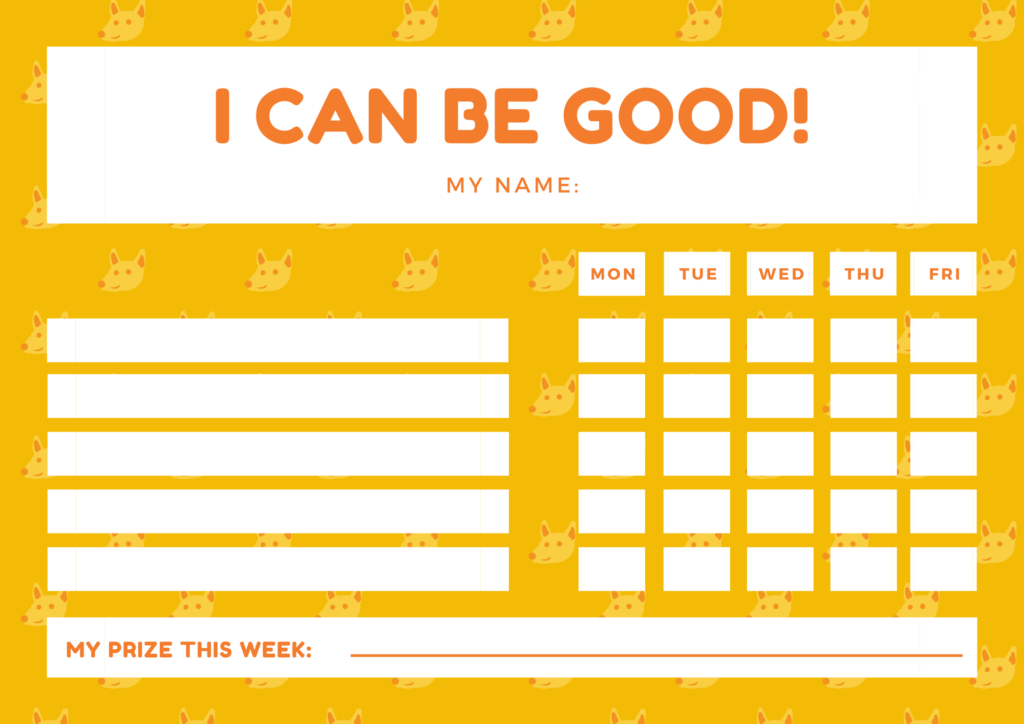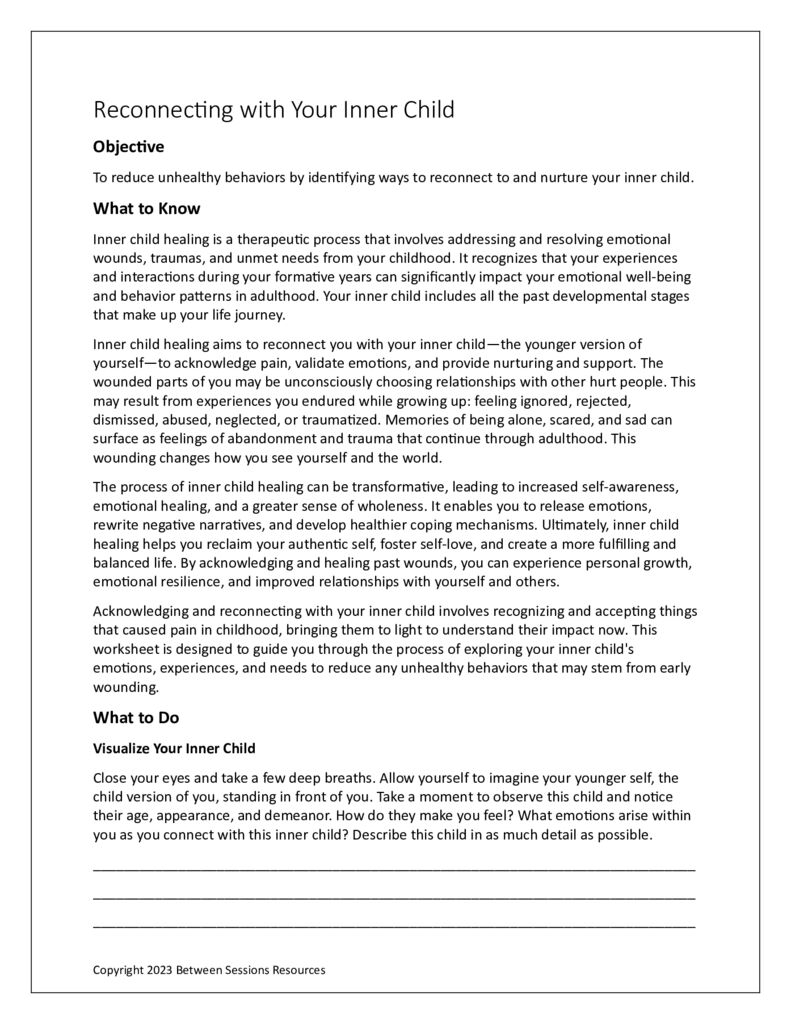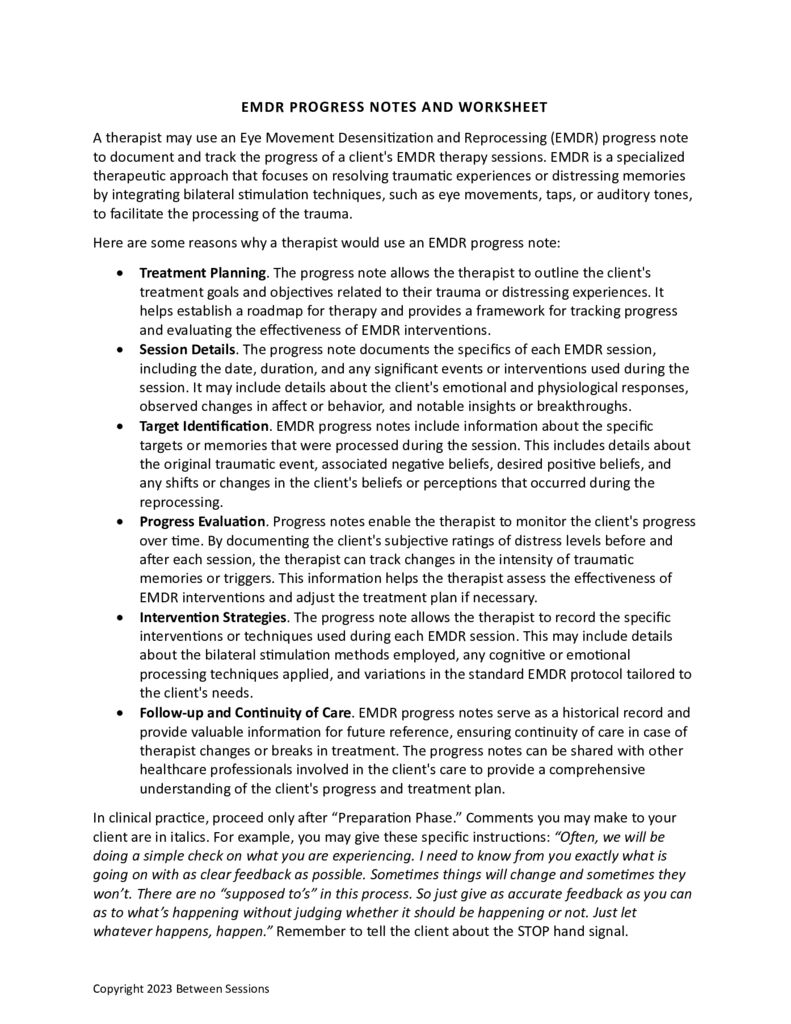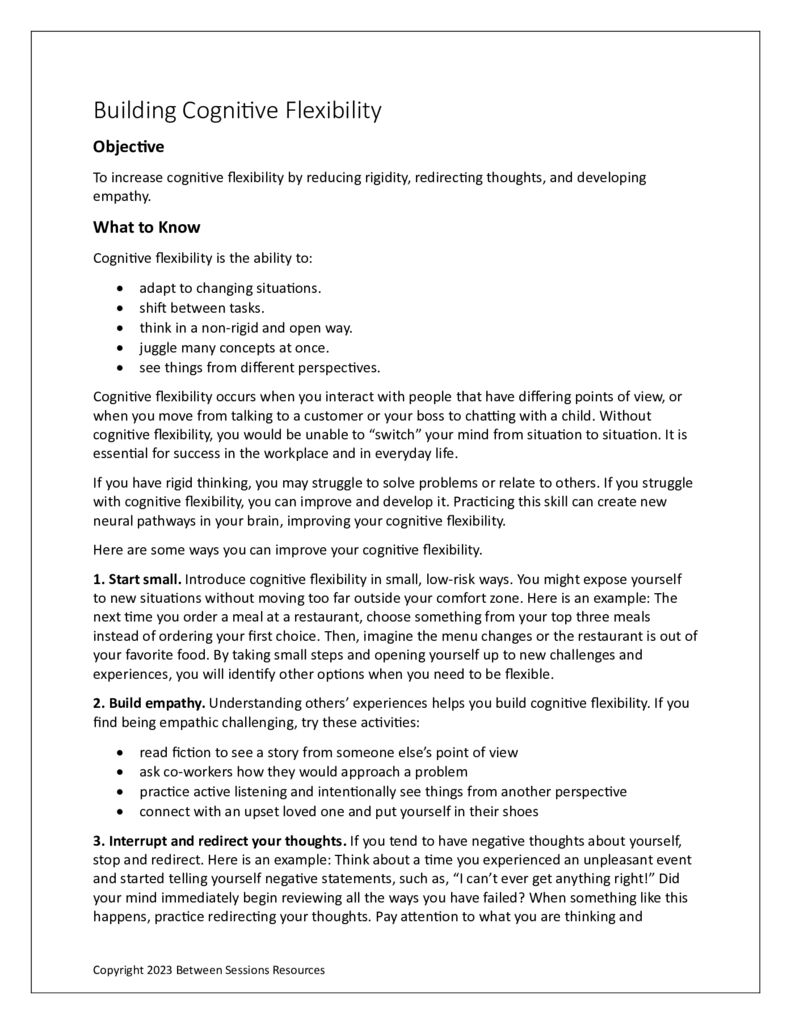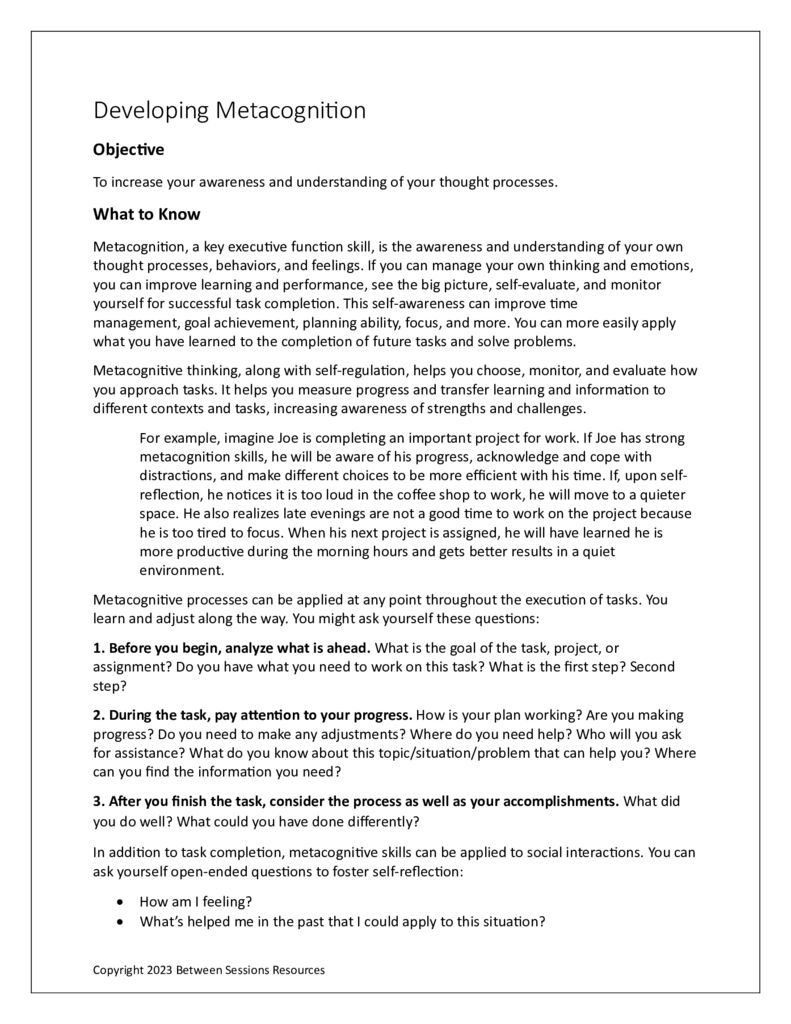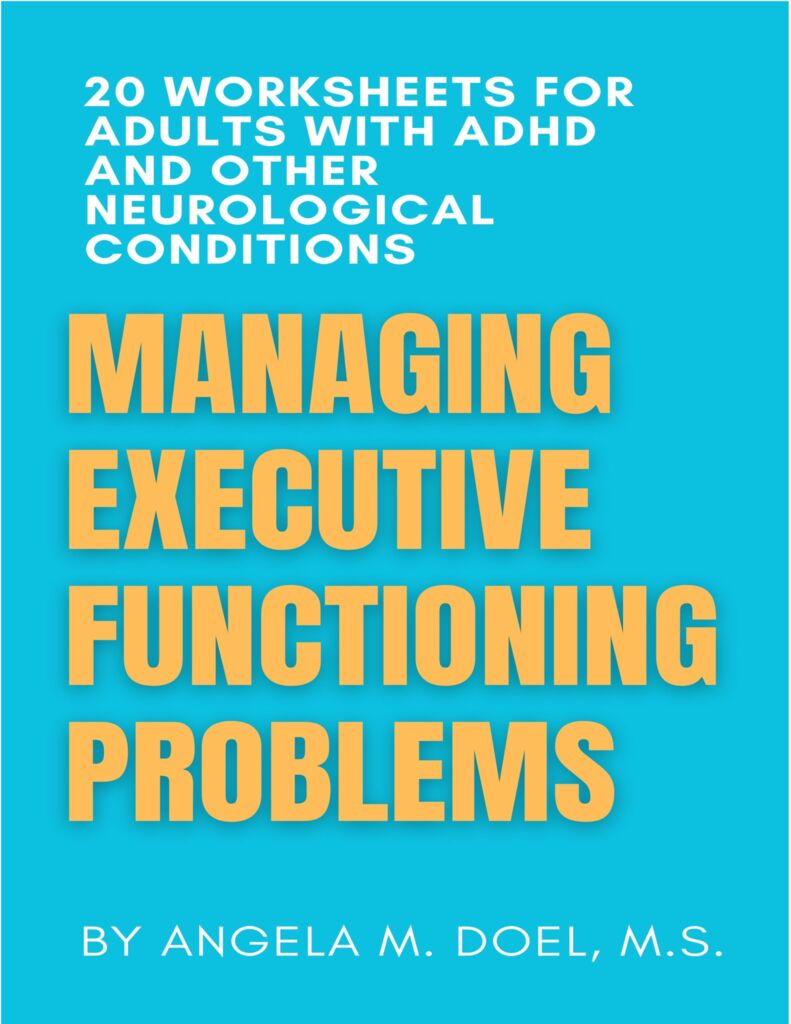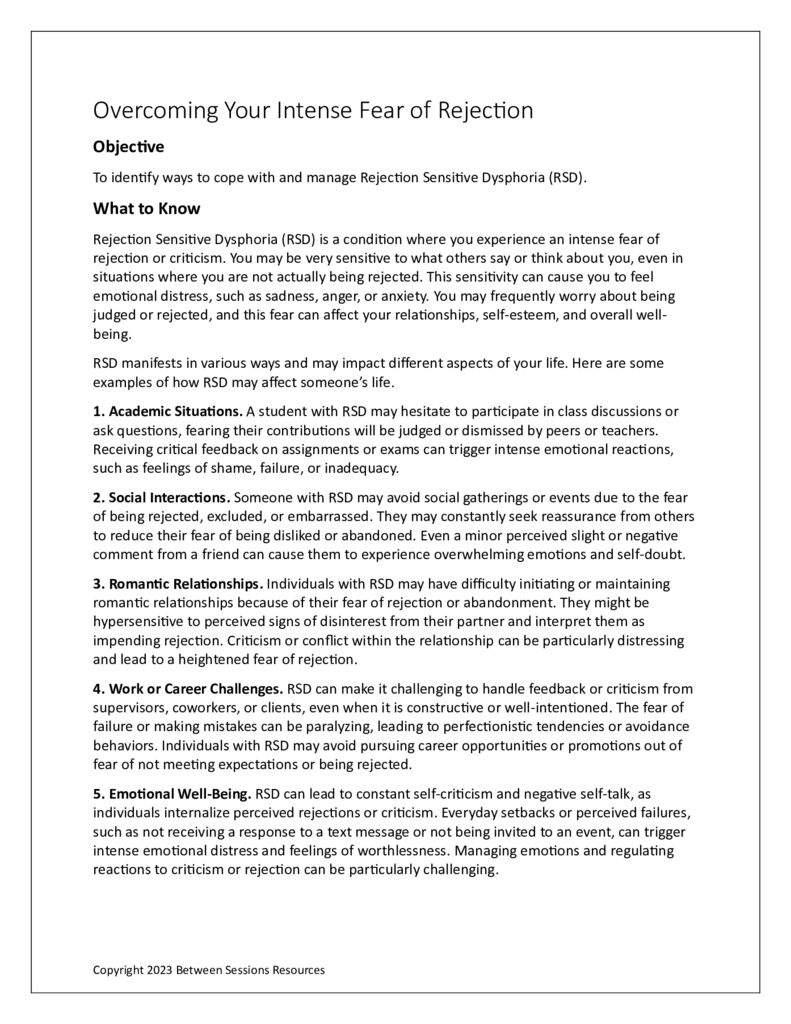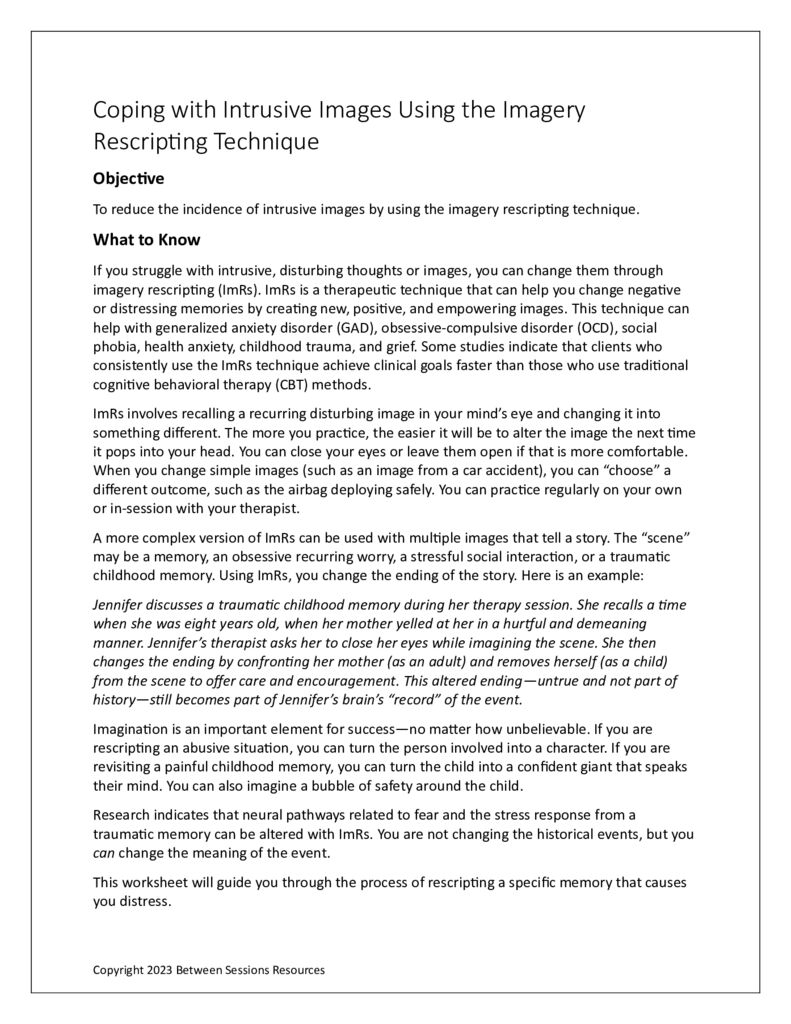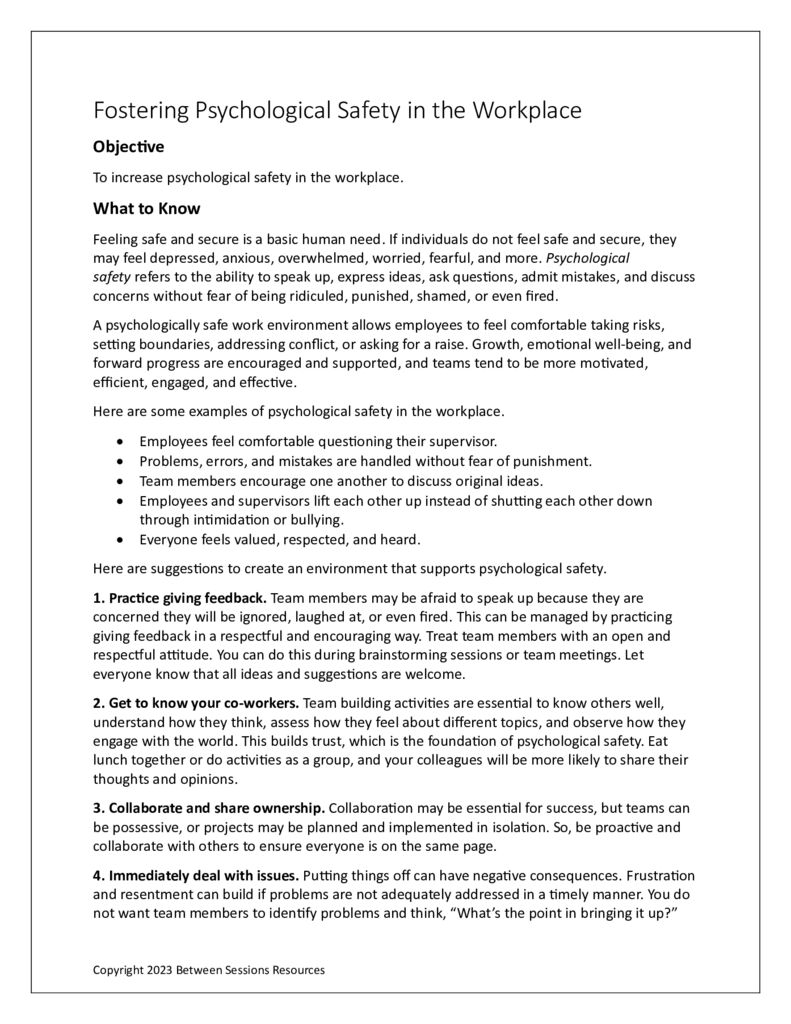Studies tell us that when professionals prescribe therapeutic homework, clients report significantly better outcomes. Our worksheets are derived from evidence-based therapies, and they are designed by experienced professionals. Use the navigation links on the left of this page to view tools in a specific category. Or use the search box at the top of this page to find the exact tool you are looking for.
To modify the tools, click the ‘Send to Client’ button by each tool to open the Psychology Forms Filler. You can then edit the tool as you see fit and either print it out or send it to a client to be filled out online. Click here for a tutorial on using the Psychology Forms Filler.
If you can’t find what you are looking for on this site, please let us know by
clicking here and our team of writers, graphic artists, and therapists will custom-design it for you.
IMPORTANT: This chart is in PNG (image) form. To make an editable PDF, click the SEND/EDIT button and modify it and download it from the Psychology Forms Filler. To use as an image (i.e. for the Virtual Counseling Room), click VIEW/PRINT to open it and then right-click your mouse and select “Save As” to download to your computer. (0623. behavior, ADHD)
Inner child healing is a therapeutic process that involves addressing and resolving emotional wounds, traumas, and unmet needs from your childhood. This worksheet takes people through a process of visualizing their younger selves, thinking about challenging emotions or experiences from their childhood, creating a timeline of important events, developing a conversation with their inner child, and more. (0623. depression, bipolar, introspection, insight, trauma)
This form is used to document the progress of a client’s EMDR therapy sessions. EMDR is a specialized therapeutic approach that focuses on resolving traumatic experiences or distressing memories by integrating bilateral stimulation techniques, such as eye movements, taps, or auditory tones, to facilitate the processing of the trauma. This worksheet explains to clients the reasons for using EMDR and helps them record data for the EMDR process. (0623, EMDR, trauma, PTSD)
This worksheet is designed to help clients develop cognitive flexibility by reducing rigidity, redirecting thoughts, and developing empathy. (0623, ADHD, cognitive flexibility, self-regulation, executive functioning, rigid thinking, empathy, problem-solving)
This worksheet is designed to help clients develop metacognitive thinking, along with self-regulation, to help them choose, monitor, and evaluate how they approach tasks. It helps them measure progress and transfer learning and information to different contexts and tasks, increasing awareness of strengths and challenges. (0623, ADHD, metacognition, thinking, self-regulation, executive functioning, memory, problem-solving)
This form makes it easy for people to track compulsive activities associated with Obsessive Compulsive Disorder. People are asked to rate a variety of activities on a 1 to 5 scale reflecting how much the compulsion impacts their lives. (0623. OCD, rating scale, impairment, compulsive behavior, compulsion)
Executive functioning is a set of cognitive skills that are essential for engaging in goal-directed behavior, planning, solving problems, prioritizing, decision-making, sustaining attention, and developing emotional regulation. The workbook includes 20 worksheets that address executive functioning, including inhibition, cognitive flexibility, planning and organization, and more. The workbook can be given as a whole to a client or individual worksheets can be extracted using the Psychology Forms Filler. (0623, ADD, Attention Hyperactivity Disorder, executive dysfunction)
This worksheet helps clients that struggle with Rejection Sensitive Dysphoria (RSD), a condition where they experience an intense fear of rejection or criticism. They are extremely sensitive to what others say or think about them, even in situations where they are not actually being rejected. This sensitivity can cause them to feel emotional distress, such as sadness, anger, or anxiety, and they may frequently worry about being judged or rejected. RSD affects their relationships, self-esteem, and overall well-being. (0523, rejection, ADHD, criticism, anxiety disorders)
This worksheet helps clients that struggle with intrusive, disturbing images, change them through imagery rescripting (ImRs). ImRs is a therapeutic technique that can help change negative or distressing memories by creating new, positive, and empowering images. (0523, GAD, OCD, anxiety disorders, trauma, memories, intrusive images)
A psychologically safe work environment allows employees to feel comfortable taking risks, setting boundaries, addressing conflict, or asking for a raise. Growth, emotional well-being, and forward progress are encouraged and supported, and teams tend to be more motivated, efficient, engaged, and effective. This worksheet encourages the creation of a psychologically safe workplace through a team-building activity and problem-solving exercise (0523, coaching, workplace issues, career, management, leadership, team building, psychological safety)

